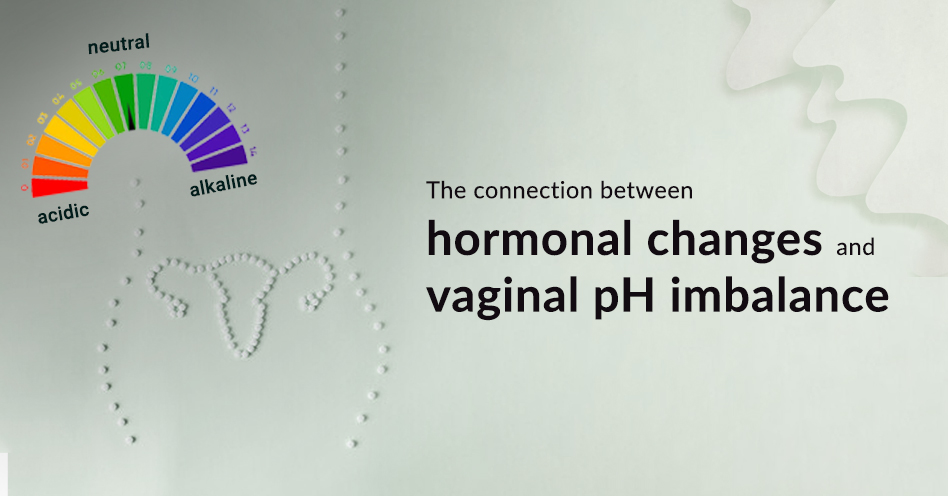Maintaining personal hygiene and wellness is an essential aspect of overall health. One common concern individuals may encounter involves changes in the natural scent or balance of the body’s lower region. Though it may be an uncomfortable topic for some, understanding the biology behind such changes is important for preventive care and early detection of potential health issues.
This guide offers insights into the biological factors that can influence the body’s pH balance, what may cause noticeable changes in odor, and when it’s advisable to speak with a licensed healthcare provider.
What Is pH Balance and Why Does It Matter?
The body’s internal environment maintains a specific pH level to keep microbial communities in balance and to support healthy function. For the lower body area, especially in individuals assigned female at birth, a mildly acidic pH — typically ranging between 3.8 and 4.5 — helps prevent unwanted microbial overgrowth and supports beneficial organisms.
Disruption to this balance may result from:
- Hormonal changes related to the menstrual cycle, pregnancy, or menopause
- Use of certain medications, such as antibiotics
- Contact with fragranced or chemical-based hygiene products
- Wearing tight-fitting or non-breathable clothing
- Lifestyle changes, including increased physical activity
While pH shifts may be temporary, persistent imbalance may signal an underlying issue that requires attention.

Common Causes of Unusual Body Odor in the Lower Region
A noticeable or persistent scent is not automatically a concern and can often be addressed through hygiene and clothing choices. However, certain conditions may require medical review — especially if additional symptoms are present.
1. Imbalance of Natural Flora (Microbiota)
A common condition occurs when helpful bacteria are reduced, allowing other types of microbes to grow. This may lead to:
- A stronger-than-usual scent, sometimes more noticeable after physical activity
- Mild discomfort during urination
This condition is manageable with guidance from a healthcare provider, often involving a short course of prescribed treatment.
2. Parasitic Infections
Some microorganisms, transmitted through close personal contact, may lead to irritation and noticeable changes in natural scent. Though symptoms vary, they may include:This type of infection is treatable with antiparasitic medication. Early diagnosis is important to prevent further health impacts or transmission.
3. Overgrowth of Naturally Occurring Yeast
A yeast imbalance can develop in moist or warm environments. Though typically odorless, individuals may experience:
- Redness in the surrounding skin
Non-prescription or prescription antifungal treatments are widely available and often effective.

Rare But Serious Health Considerations
In more unusual cases, noticeable changes may be linked to other health issues.
1. Bacterial Infections Transmitted by Contact
Some bacterial infections may not cause immediate symptoms but can lead to discomfort or complications if left untreated. Routine screening is recommended for individuals with new or multiple partners.
2. Reproductive or Urological Conditions
Persistent changes in scent, or unexpected bleeding may require a full evaluation by a medical professional. Conditions involving the uterus, cervix, or urinary system can present with subtle symptoms in early stages.
Routine exams and diagnostic screenings (e.g., Pap tests, ultrasounds) play a key role in early detection and prevention.

Everyday Practices to Support Wellness
To maintain comfort and support internal balance, consider the following evidence-informed habits:
- Use gentle hygiene methods
Wash the external area with warm water. Avoid chemical-heavy products or over-washing, which may disrupt the natural environment. - Choose breathable fabrics
Wearing cotton-based undergarments and avoiding tight synthetic materials reduces trapped moisture. - Stay hydrated and eat a varied diet
A diet rich in fiber and probiotics supports immune function and gut health, which indirectly affects other systems. - Schedule regular medical check-ups
Annual visits with a primary care physician or gynecologist allow for early identification of any irregularities.

When to Seek Medical Advice
Consult a healthcare professional if you notice:
- A scent that becomes consistently stronger or unpleasant
- Discomfort during urination or general irritation
- Bleeding not associated with your regular cycle
These symptoms do not always indicate a serious problem, but timely attention ensures peace of mind and quicker recovery.
Destigmatizing the Conversation
Changes in scent or comfort in the lower body are normal, manageable, and common. They are not a reflection of personal hygiene failure but rather indicators of internal balance. With proper information and support, individuals can feel confident addressing their health needs without embarrassment.
Normalizing these topics encourages a healthier relationship with our bodies and fosters proactive care for all.
Sources for Further Reading
- Cleveland Clinic – Understanding Body pH Balance
- CDC – Common Infections and Preventive Care
- World Health Organization – Women’s Health Resources
- American College of Obstetricians and Gynecologists (ACOG)
- U.S. Preventive Services Task Force – Women’s Screening Guidelines
